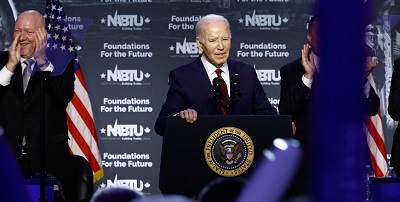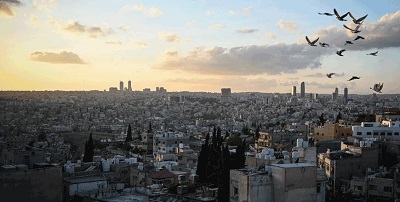Qatar’s sky and sea links are open, don't compare it to Gaza - By Abdulrahman al-Rashed, Al Arabiya
The Qatari citizen is maybe the last person that the world thinks of in the current Gulf crisis. Qataris have suddenly found themselves victimized by their own government’s long-term policies of hurting other countries and supporting extremist groups.
Qatar is now a target after it had targeted the countries of the region, reassuring its citizens and guaranteeing their security because of the US base on its territories and the Gulf Cooperation Council ties. The game changed after Saudi Arabia, Egypt, the United Arab Emirates and Bahrain decided to cut off relations with Qatar. Authorities in Doha were impaired as they tried to exploit their citizens, claiming that the sanctions are targeting the Qatari citizen. In this, Qatar was reproducing the language of the Saddam regime formerly and Hamas currently.
Paying the price
This is the first time that the Government of Qatar has felt the danger and paid the price of its hostile policies against other countries. It had incessantly sabotaged Arab societies by spreading and supporting extremist ideological movements and funding armed organizations.
The protests on social networking sites supporting Qatar in the region, are mostly from those who follow these terrorists who are pursued internationally, such as Saudi terrorist Abdullah al-Muhaysini, Kuwaiti extremist Hamed al-Ali and dozens of others who stirred problems for the world, and not just for Egypt and Saudi Arabia.
Most of the persons featured on the blacklist announced by the four countries yesterday are located in or supported by Qatar. They are also on the US list. Qatar lives safely and calmly amidst a turbulent region. It was only targeted twice in 30 years: in 2005, when a terrorist bombing targeted the British school in Doha, and a year earlier, when Chechen opposition leader Salim Khan Yandarbiyev was assassinated on the street in Doha. The Qatari court convicted Russian officials and sentenced them to life imprisonment, but after Russian threats, Qatar freed them a few days later. The freed Russians were welcomed in Moscow on an official level and the red carpet was rolled out for them.
Egypt has survived for years with the terror of the groups that Qatar supports. The same applies to Saudi Arabia, which fought a war with al-Qaeda between 2003 and 2009.
These groups had the explicit support of Doha, which embraced al-Qaeda’s calls to target Saudi Arabia. Riyadh, Cairo, Tunis, and other capitals that witnessed bloodshed, did not do as Moscow did to stop the Qatari authorities. They only protested at the diplomatic level.
Evading promises
We are not talking here about illegal reactions in the face of what Doha authorities were doing. Cutting off relations would have been enough. We expect the re-emergence of these policies and circumvention using shrewdness. Qatar creates a dilemma to evade its promises every time.
Now, Qatar is complaining about what it considers as an unjust siege, a complaint that provokes irony more than compassion! Just a reminder: Qatar’s airspace is open, and its territorial waters, except for the corridors that intersect with countries that are at odds with Doha, are also open. Qatar has enormous financial potential and a giant fleet capable of importing all of its needs from the most luxurious markets in Europe and Australia, and transferring them to Doha on a daily basis. It is the smallest country in the region and its residents are mostly in one city.
As for the attempt to imitate Gaza and copy the speech of Hamas to influence Arab and international public opinions, it does not suit the image of wealthy Qatar.
The Doha authorities are being boycotted and not besieged. All that Bahrain, Saudi Arabia and the United Arab Emirates have done was preventing the Qatari authorities from using their corridors, which is their sovereign right under international law, and is a civilized style compared to what Doha authorities have been trying to do in order to destabilize Arab regimes. There is a price to be paid when sabotaging neighborly relationships. Here the price is paid by Qatar Airways, which have to travel longer hours now because Qatar’s three neighbors closed their airspace. Qatar Airways lost 1,200 flights per month from Saudi Arabia alone, which used to transport 250,000 passengers per month, while Saudi Arabian Airlines flights to Qatar were only 120 flights. This is the price that Qatar authorities will have to pay. It may not care about its financial losses as much as it is bothered by the devaluation of its air carrier in the world.
The boycott will affect the authorities of Doha on the financial, moral and political levels. However, it cannot be considered as a siege as long as Qatari ships and aircraft are able to travel and trade with the world. The siege is when all corridors are blocked, as has happened with Iraq before.
Therefore, Qatar has to search for convincing excuses or think about reconciliation, before the intensification of the pressures and the increase of the number of countries boycotting it.
Latest News
 'Sinwar Above Ground': Hamas official's revelation shocks Israeli Occupation
'Sinwar Above Ground': Hamas official's revelation shocks Israeli Occupation US president signs bill to provide new aid for Ukraine
US president signs bill to provide new aid for Ukraine Prime minister directs government to support IEC ahead of upcoming elections
Prime minister directs government to support IEC ahead of upcoming elections Parliamentary elections for 20th Lower House to be held on September 10 – IEC
Parliamentary elections for 20th Lower House to be held on September 10 – IEC Amman Chamber of Commerce says GDP grows by 4.4% in 2023
Amman Chamber of Commerce says GDP grows by 4.4% in 2023
Most Read Articles
- Palestinian prime minister, Jordanian ambassador discuss humanitarian efforts in Palestine
- US president signs bill to provide new aid for Ukraine
- Senate president, Rwanda’s ambassador discuss bilateral relations
- Prime minister directs government to support IEC ahead of upcoming elections
- 'Sinwar Above Ground': Hamas official's revelation shocks Israeli Occupation
- “Israel” withdraws main infantry brigade from Gaza
- Iran cuts Syria presence after strikes blamed on Israel —monitor
- European Parliament overwhelmingly condemns Iranian strikes against “Israel”
- US Supreme Court seems split on Idaho abortion ban
- Vaccines saved at least 154 million lives in 50 years — WHO